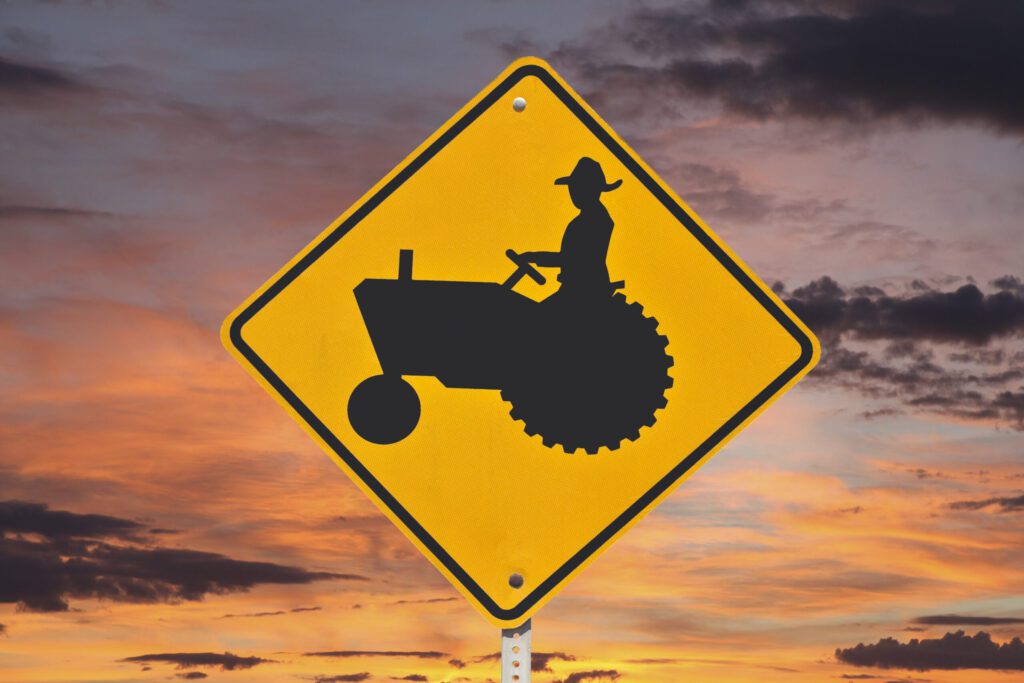Common Sense, Caution Go a Long Way in Prevention
by JULIE GMITTER
Farm safety education is crucial for successful and robust operation, regardless of industry. In Central Florida, other than following good general farm safety techniques, there are also unique hazards to be cognizant of, especially during our summer months.
Attire and other accessories can help keep workers safe during their day-to-day activities. It’s important to avoid loose-fitting clothing or hanging garments that could accidentally get caught in equipment. Safety goggles should always be worn for sawing, mowing, grinding, and chipping. Respirators or other approved devices should always be worn during pesticide handling and application.
When thinking about Florida-specific farm safety concerns, heat probably comes to mind first. Florida is also the lightning capital of the country! Working in a field or atop a piece of farm equipment can make you an easy target and could result in severe injury and even death, so it’s important to stay mindful of weather conditions and forecasts when working outdoors.
David Byrd, who was born and raised in Polk County, is familiar with Florida agriculture and its inherent safety issues. Byrd taught agriculture in a high school for 24 years, then served as a teacher resource specialist for agricultural and industrial programs, and continued to teach ag mechanics, conservation, and international agriculture development at Warner University.
He points out a potential injury that might not immediately come to mind — allergic reaction to plants or animals, especially if there is no prior knowledge of the allergy. He shared his own experience of a severe allergic reaction to mango sap. Luckily, his reaction was not life-threatening, but it did serve as a powerful cautionary tale.
“We have a mango tree in our yard incidentally, and I carried a bunch of them inside one day,” he says. “Over the next few days, I developed serious itching and rash, and the more he scratched the more it spread! It looked like poison ivy on me. If I touch a limb or pick a fruit still oozing a bit of sap, that’s all it takes.”
Byrd also emphasizes the importance of wearing a wide-brimmed hat and sunscreen, as well as long sleeves. It’s crucial to cover up to make sure to avoid excessive exposure to the intense Florida sun. Exposure can cause skin health problems later down the road.
While dealing with livestock, there’s always the potential for injuries from stomping, kicking, and biting. These can often be avoided by staying clear of the animal’s blind spots. In addition, it’s important to remember not to get too comfortable around livestock because of their unpredictable nature. Students raising large animals for fairs and competitions need to be extremely careful when handling new project animals, Byrd says.
Luckily, technology has improved farm and agriculture safety and helped to reduce the number of injuries, especially since the 1960s and ’70s.
“Technology has helped, but OSHA and worker safety education has also made a difference, for sure,” Byrd says. “We’re fortunate to be recipients of education but also fortunate that there are worker safety standards. There are advocates for workers to help look out for you, your rights, and your safety. Conditions are better than they were even in the 1960s and 1970s, protection and safety-wise.”

